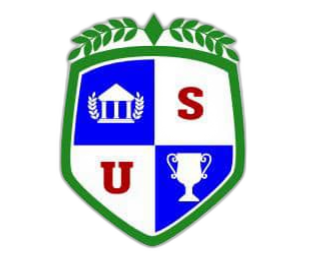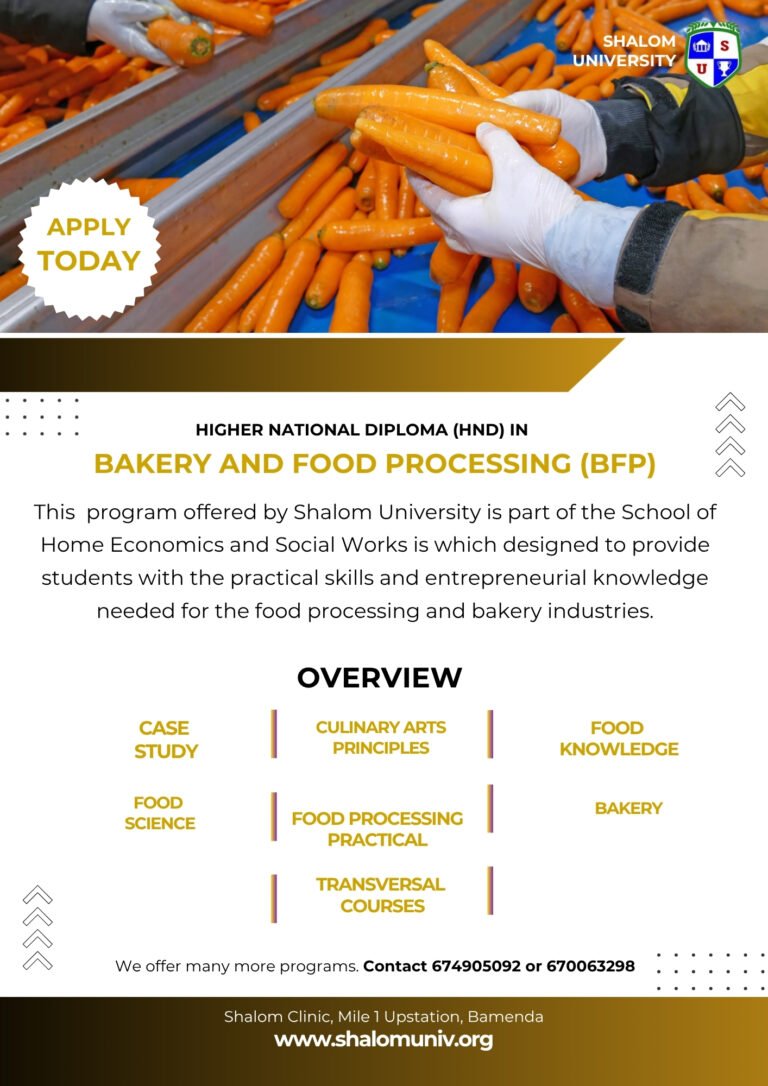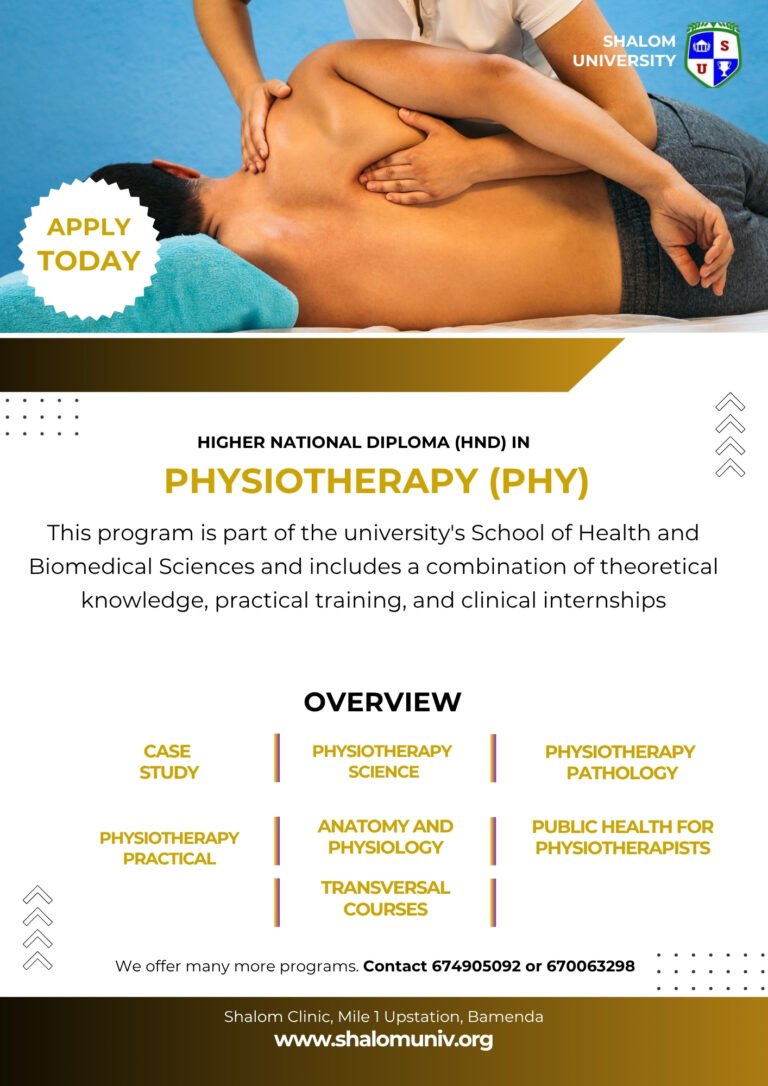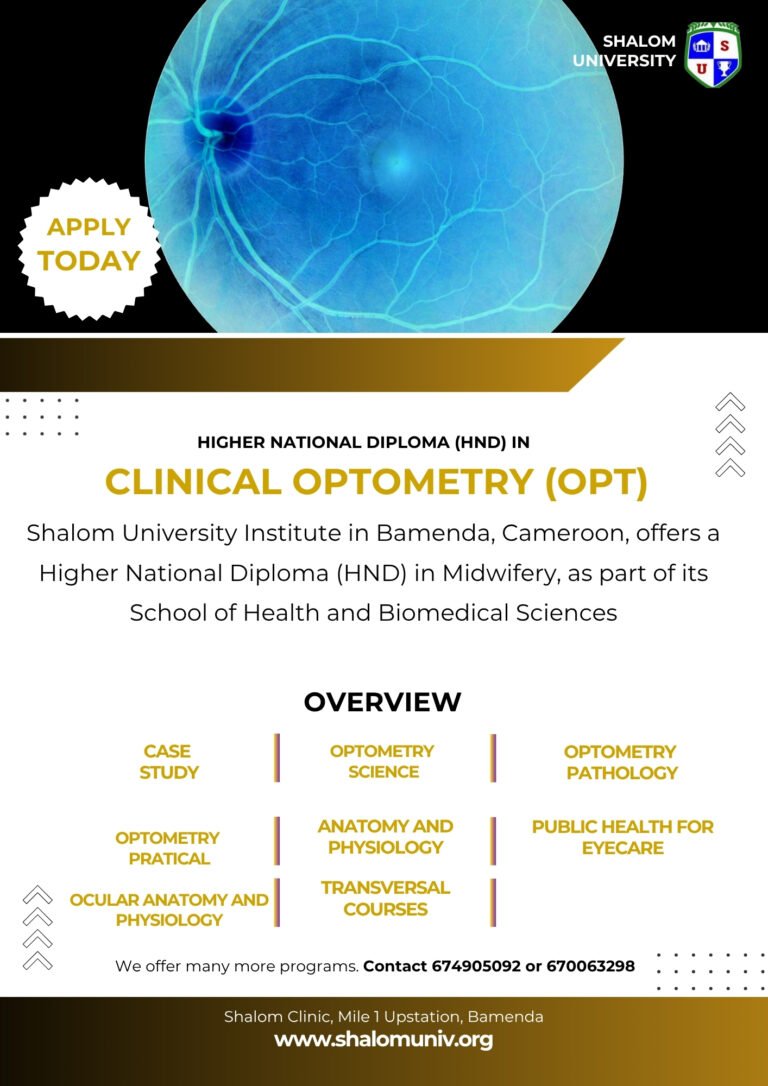Oral health is a cornerstone of overall well-being, and in Cameroon, the demand for skilled dental professionals is significant, especially given the high prevalence of oral health-related diseases. The HND in Dental Therapy (DTH) at Shalom University in Bamenda is designed to address this need by training competent and compassionate oral healthcare providers. This program offers a comprehensive curriculum that blends foundational sciences with extensive practical training, preparing graduates to excel in preventive, restorative, and community-based dental services, which are critical in the Cameroonian healthcare landscape.
The curriculum at Shalom University is structured to provide a deep understanding of dental sciences while also focusing on the practical application of clinical skills. Students are prepared to work effectively within the healthcare team, providing essential dental services and promoting oral health awareness in both urban and rural communities.
The DTH Curriculum at Shalom University
The HND in Dental Therapy at Shalom University is built around a progressive series of core papers that develop a student’s knowledge and skills from basic principles to advanced clinical application.
Paper: Basic Science I & II
These foundational papers provide students with the essential scientific knowledge required to understand oral health and disease. In the context of Cameroon, where students may have varied educational backgrounds, these courses ensure a solid scientific footing.
Key topics include:
- Anatomy and Physiology: A thorough understanding of the human body, with a specific focus on the head, neck, and oral cavity. This is crucial for understanding the functions of the jaw, teeth, and surrounding structures.
- Microbiology: Students learn about the microorganisms that cause oral infections, such as dental caries (tooth decay) and gingivitis (gum disease). This knowledge is vital for infection control and treatment planning.
- Biochemistry: An introduction to the chemical processes that occur in the mouth and body, which influence oral health and disease progression.
- Pathology: Understanding the nature and causes of oral diseases is essential for accurate diagnosis and effective treatment.
Paper: Basic Dental Science
This paper bridges the gap between general science and specific dental knowledge, providing students with a specialized foundation in the principles of dentistry.
Topics covered include:
- Dental Anatomy and Morphology: Detailed study of the structure, shape, and characteristics of teeth, including primary and permanent dentition.
- Dental Materials: An introduction to the properties and uses of various materials used in dental procedures, such as restorative materials, impression materials, and cements.
- Radiography and Imaging: Students are introduced to the principles of dental X-rays, including safety protocols, image acquisition, and interpretation.
Paper: Clinical Dental Science I & II
These two sequential papers move students from foundational knowledge to the practical application of dental procedures. The curriculum is designed to build competency in key clinical skills, which are essential for dental therapists in Cameroon, who often manage a wide range of patient needs.
Key areas of focus include:
- Oral Health Assessment and Diagnosis: Learning to perform comprehensive oral examinations, chart findings, and diagnose common oral health conditions.
- Restorative Dentistry: Students are trained in carrying out simple fillings for both permanent and primary teeth, a crucial skill given the high prevalence of dental caries in Cameroon.
- Periodontal Therapy and Oral Hygiene: Focusing on treating gum disease through scaling and root planing, and providing patients with instruction on proper oral hygiene.
- Pediatric and Geriatric Dental Care: Specialized training for managing the unique dental needs of children and older adults, including the extraction of deciduous teeth.
Paper: Applied Clinical Dental Science
This paper represents the highest level of clinical application within the HND program. It focuses on integrating skills and knowledge to manage more complex cases and apply specialized techniques.
Topics include:
- Local Anesthesia Administration: Practical training in the safe administration of local anesthetics for pain management during dental procedures.
- Emergency Dental Treatment: Management of dental emergencies, including temporary restorations and pain relief for urgent conditions.
- Basic Orthodontic Procedures: Introduction to simple orthodontic procedures, which is particularly relevant in the context of rising interest and need for orthodontic treatment in Cameroon.
- Referral and Communication: Understanding when to refer patients to specialists (like dentists or oral surgeons) for more complex problems, and effective communication with both patients and other healthcare providers.
Paper: Case Study
The Case Study paper is a vital component that integrates all the theoretical and practical knowledge gained throughout the program. It challenges students to analyze comprehensive patient scenarios, from initial diagnosis to treatment planning and follow-up. This is particularly relevant for dental therapists in Cameroon, who are often required to make independent clinical judgments within their scope of practice.
The course trains students to:
- Develop a comprehensive treatment plan: Based on a given patient case, students must devise a complete treatment plan that addresses all diagnosed oral health issues.
- Consider all factors: Students must consider patient-specific factors, such as age, medical history, socioeconomic status, and access to care, which are all significant in the Cameroonian context.
- Defend their decisions: During formal presentations, students must justify their diagnostic and treatment choices, demonstrating their clinical reasoning and critical thinking skills.
- Reflect on professional practice: The process encourages students to reflect on their skills, communication strategies, and ethical responsibilities.
The Dental Therapist’s Impact in Cameroon
Graduates of the HND in Dental Therapy from Shalom University are prepared to enter a rapidly expanding field in Cameroon’s healthcare sector. With their specialized training, they can find opportunities in public health services, private clinics, and NGOs, often working to increase access to oral healthcare in underserved communities. Their ability to provide preventive, restorative, and educational services makes them invaluable assets in addressing the high prevalence of dental caries and gingivitis in the country.
The program’s emphasis on hands-on training and community oral health initiatives means graduates are not only clinically competent but also equipped to act as health educators, promoting better oral hygiene habits and addressing the challenges of limited oral health literacy observed in some studies. The HND from Shalom University is more than just a qualification; it is a pathway to a career dedicated to improving the oral health and overall well-being of Cameroonians.




